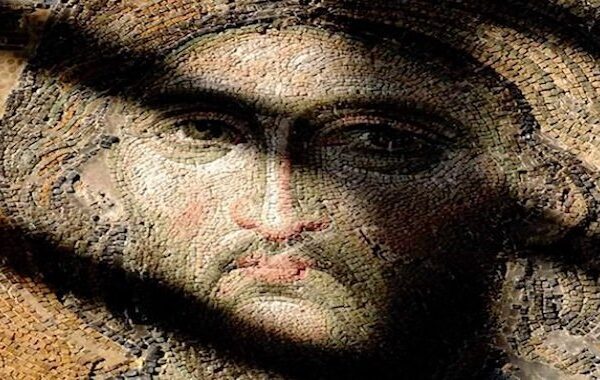The fear of God
11 November 2020In the petition which we address to God, “For this Holy House” (which we heard about in the previous Homily), the following words are also said: “and for those who enter it with faith, reverence, and fear of God, let us pray to the Lord.” In other words, to pray for those who enter the holy Church with faith, reverence and fear of God.
What does the Church mean by “fear,” which is connected with the faith and reverence of Christians who are entering the church? We can definitely say that the “fear of God” has no relation whatsoever with the fear that someone feels when an enraged person attacks them with a weapon (or any other visible danger associated with the word “fear”). It is impossible for God to be the cause of this kind of fear, as He is compassionate, merciful, and full of love.
To understand what the “fear of God” really is, let us look at the Holy Bible (both the Old and New Testaments).

The first and foremost Commandment of God on Mount Sinai was “You shall fear the Lord your God and Him alone you shall worship” (Deuteronomy 6:13). When Moses later spoke to the people of Israel, he said to them (among other things): “You should feel an awe (profound reverence) and love towards God, the Almighty, Who, as you have seen with your own eyes, performed great and wonderful deeds. You should walk in all His ways and worship Him with all your heart and with all your soul. Be careful to worship Him alone and hold fast to Him” (see Deuteronomy 10:12, 20-21). St. Paul the Apostle also emphasized this: “Let us serve God acceptably with reverence and godly fear” (Hebrews 12:28). The Prophet Jeremiah (32:40) explains that the fear of the Lord is a gift of God, offering His words: “I will put My fear (= a deep reverence-godliness) into their hearts so they may not depart from Me.”
This fear is granted as a gift to the person who turns to God through faith. It is a type of enlightenment, and a reflection of faith. It is the result of Divine Grace. A person who has this fear of God in their heart stands in reverence before God’s greatness, and realizes their own spiritual poverty. It is this profound respect and awe (the fear of God) that motivates the soul to devote one’s whole being to God, the Creator of All. As St. Sophrony of Essex reassures us: “The fear of God is dazzling to us in front of God Who is revealing Himself. We feel unworthy of such a God and we are in a state of awe.”
This is why there are many references in the Divine Liturgy and Services to the fear of God:
“Make us worthy, Oh Lord, of loving and feeling fear for You, from the bottom of our heart” (Third Prayer of Vespers).
“Implant in us also the fear of Your blessed commandments” (Prayer before the Gospel reading).
“Grant also, Oh God, to those who pray with us … to serve Thee with fear and love … (Second Prayer of the Faithful).
“With the fear of God, and faith, and love, draw near” (Before Holy Communion).
“ … establish us all in Thy fear;” (After Holy Communion).
My beloved brothers and sisters, the Church prays for those who come with faith, reverence and the fear of God. At the same time, we are reminded of how we should feel in our hearts when we enter the church and worship God. The church is not an ordinary place, but a place wholly devoted to God. The Precious Body and Blood of Christ are kept on the Holy Table (Altar), and so the Lord our God is always present. He is inviting and welcoming us to His holy Home, in His house. This thought must always be first in our minds while we are in the sacred church. Our hearts and souls should be concentrated on Christ. We should have the sense of awe that Moses felt in front of the burning bush, when he heard God’s voice saying to him: “the place where you stand is holy ground” (Exodus 3:5). After that, Moses did not dare lift his eyes, “… for he was afraid to look at God” (Exodus 3:6). While in the church, our behavior should completely reflect this. We must not chat with one another or be noisy. We are to venerate the holy icons and express reverence to the persons depicted on them. We should light our candles with devotion. So long as we are inside the church, we try to keep our minds and hearts on what is happening during the Divine Liturgy, or any other Service (not letting our thoughts wander). If we are guests of the Supreme Ruler of the State in their Palace, is it possible to turn around and start chatting with each other while they are there in front of us? If such a thing is unacceptable, it is even more so when taking place inside the church of God.
In the Cherubic hymn, we hear that in the course of the Divine Liturgy “we are mystically representing the Cherubim.” How are the Angels standing in front of God’s Throne? The Prophet Isaiah (6:2-3) reveals to us that they are covering their faces, out of reverence for God. If the Angels act in this way, then how much greater must our humility be, when standing inside God’s temple!
May the Lord grant to us all His divine fear, and make us worthy of worshipping Him always with a burning faith, holy reverence, and warm love, so that our worship may be well received by Him. Amen.






